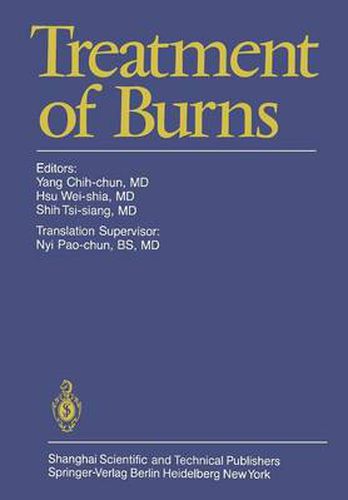Readings Newsletter
Become a Readings Member to make your shopping experience even easier.
Sign in or sign up for free!
You’re not far away from qualifying for FREE standard shipping within Australia
You’ve qualified for FREE standard shipping within Australia
The cart is loading…






This title is printed to order. This book may have been self-published. If so, we cannot guarantee the quality of the content. In the main most books will have gone through the editing process however some may not. We therefore suggest that you be aware of this before ordering this book. If in doubt check either the author or publisher’s details as we are unable to accept any returns unless they are faulty. Please contact us if you have any questions.
The greater the poverty, The stronger the will. In the face of hardship, Soar, soar, soar on still WANG Bo (650-676 A.D.) In the late spring of 1958 a patient was admitted to Rui Jin Hospital with extensive burns; just minutes before he had been dexterously operating one of Shanghai’s productive converters used in the making of steel. He resembled a mass of charcoal but was mentally alert, asserting that he must survive, not only because of the great expectations he had of life but also to con tinue working in his beloved post as first-generation steelworker in this newly liberated country. The case presented a stern challenge; faced with this man yearning both for his own life and for that of the society in which he lived, we had no way of escaping either poverty (in the form of our limited facilities) or hardships. However, by pooling all our efforts we were able to ensure that the patient ultimately survived the extremely tortuous course that followed, in addition to which quite good functional recovery was achieved. So began our burn unit. It was on this patient that we performed for the first time artificial hibernation (in the treatment of burns), early eschar excision, repeated autos kin cropping, and allografting. Not only were these the decisive measures which helped our patient to achieve his professed intention, but they also gradually evolved to become the characteristics of our present-day treatment.
$9.00 standard shipping within Australia
FREE standard shipping within Australia for orders over $100.00
Express & International shipping calculated at checkout
This title is printed to order. This book may have been self-published. If so, we cannot guarantee the quality of the content. In the main most books will have gone through the editing process however some may not. We therefore suggest that you be aware of this before ordering this book. If in doubt check either the author or publisher’s details as we are unable to accept any returns unless they are faulty. Please contact us if you have any questions.
The greater the poverty, The stronger the will. In the face of hardship, Soar, soar, soar on still WANG Bo (650-676 A.D.) In the late spring of 1958 a patient was admitted to Rui Jin Hospital with extensive burns; just minutes before he had been dexterously operating one of Shanghai’s productive converters used in the making of steel. He resembled a mass of charcoal but was mentally alert, asserting that he must survive, not only because of the great expectations he had of life but also to con tinue working in his beloved post as first-generation steelworker in this newly liberated country. The case presented a stern challenge; faced with this man yearning both for his own life and for that of the society in which he lived, we had no way of escaping either poverty (in the form of our limited facilities) or hardships. However, by pooling all our efforts we were able to ensure that the patient ultimately survived the extremely tortuous course that followed, in addition to which quite good functional recovery was achieved. So began our burn unit. It was on this patient that we performed for the first time artificial hibernation (in the treatment of burns), early eschar excision, repeated autos kin cropping, and allografting. Not only were these the decisive measures which helped our patient to achieve his professed intention, but they also gradually evolved to become the characteristics of our present-day treatment.